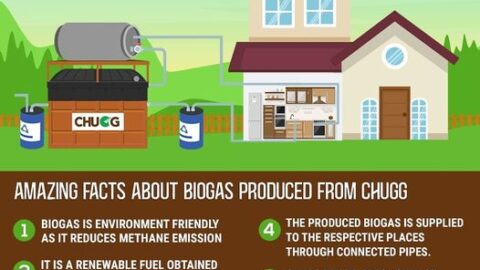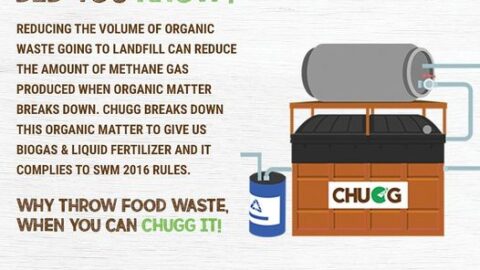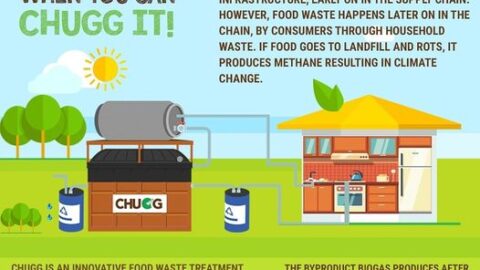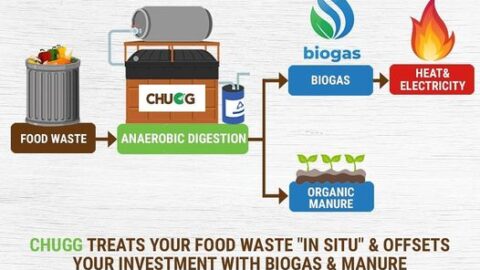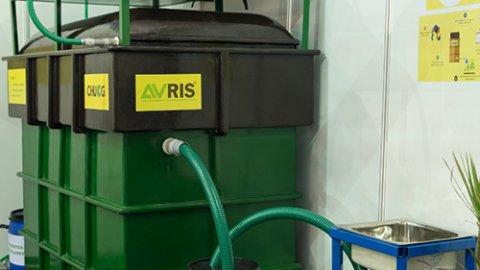The use of renewable energy has become important to reduce our impact on the environment. Discarding food waste in landfills is the major cause of Greenhouse gas emissions and climate change. Sourcing Biogas is a perfect solution to face the problems happening in our environment. Bio-energy can considerably reduce Greenhouse gas emissions as it is a non-polluting energy source. Biogas has the power to provide adequate energy to the world. Little is enough, even the little food waste that we throw can be fed to the food waste treatment system to produce Bioenergy. This energy can be used as fuel for cooking, organic fertilizer, and electricity.
Many people are setting up Biogas plants for food waste treatment due to the raising awareness of the environmental crisis. Here’s a list of information explaining the pros and cons of utilizing Biogas.
Pros of Utilizing Biogas
1. Biogas is Environment-friendly
Biogas is a clean source of energy, as no combustion takes place in the process. Therefore zero emissions of greenhouse gasses into the atmosphere. Hence using biogas as a source of energy can reduce Global warming to an extent. Production of Biogas from organic waste releases a significant amount of carbon dioxide into the air which is much lesser than the amount of carbon-di-oxide produced due to the burning of fossil fuels.
Sourcing Biogas is a sustainable option as the raw material required for it always available. Another advantage is that the process of producing Biogas is natural, hence no energy is required for the generation process. Biogas plants trap the Methane gas which is highly responsible for the contribution of the Greenhouse effect and uses it as fuel. Hence the concern for the environment among people is the major reason for the widespread use of Biogas.
2. Biogas reduces Soil and water pollution
About 3.5 million tons of garbage is discarded in landfills every day. These landfills not only spread foul smell but also contaminate underground water sources. Segregating organic waste from the garbage to generate Biogas considerably reduces wastes from landfills. This may improve water and soil quality. Biogas is generated by anaerobic digestion in which parasites and pathogens do not exist. Therefore it reduces many waterborne diseases that can occur due to the presence of parasites and pathogens. Similarly, areas with Biogas plants are less likely to get polluted with organic wastes as there will be timely, waste collection, and management. Hence collecting organic wastes from landfills for generating Biogas can prevent water and soil pollution significantly.
3. Biogas produces Organic manure
The enriched organic manure is the by-product of Biogas generation which is a perfect supplement for crops, and plants. This organic manure acts as a perfect substitute for chemical fertilizers that can cause potential harm to crops and plants in different ways. They not only harm plants but also pollute water and soil and also cause chemical burns to crops. The natural organic manure obtained from the generation of Biogas speed up the plant’s growth and prevent potential diseases.
4. Biogas generation is cheap and economic
Did you know, Biogas plant reduces your electricity bill, Gas bill, and produces organic manure that improves your soil’s fertility? Setting up a Biogas plant is cheap and economic that requires low to little investment. A small food waste treatment system can be installed at homes that feed on your kitchen waste and animal waste to produce Biogas required for cooking and electricity. The materials used for the generation of Biogas are free of cost hence Biogas plant is less in your pockets. Therefore, a Biogas plant is an investment for every home, and facilities were raw organic waste is available.
5. offers Green jobs
Large Biogas plants compress the by-product generated o high-quality natural gas that can be used in automobiles. Such large plants need low investment and offer green jobs to many. In India, about 10 million green jobs were offered in the rural areas from plant operators to landfill gas technicians, waste collectors to transporters.
6. Biogas offers a healthy cooking alternative
Using Biogas as fuel for cooking saves women from the hassle of firewood collection. Biogas in the kitchen emits less to no smoke hence it prevents your family from being exposed to smoke and deadly respiratory disease.
Cons of utilizing Biogas
1. Lack of technology development
The major disadvantage of the Biogas plant is that the system used is not much efficient as they can produce Biogas sufficient for some energy needs. Large-scale sourcing of Biogas is still not available today hence governments are willing to invest in this sector. Still, advancement in technology is needed in Biogas plants to increase their capacity of production of Biogas, at low-cost investment.
2. Traces of impurities
Biogas contains impurities even after refinement, and compression. These impurities can corrode some parts of the engine in vehicles. Hence it is inappropriate to use it as fuel for the vehicle. Whereas, it is ideal for cooking, boilers, and lamps.
3. Effects of temperature
Bacteria digest food waste at an optimal temperature of 37%. Unlike other renewable energies, Biogas production is affected by the weather. Hence in cold climates, heat energy is needed to maintain a constant Biogas supply.
Biogas is a clean renewable source of energy that has got its advantages and disadvantages. If you are ready to set up a food waste treatment system for the production of Biogas Avris environment technologies is here to help you.


